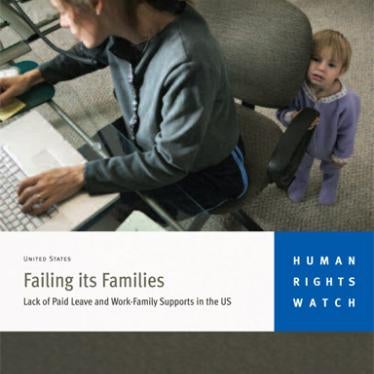Kimberly N. "leaned in" to her career for years. As a vice president of a large charitable organization, she earned high praise and enjoyed her work. When Kimberley got pregnant, she negotiated a six-week maternity leave, and looked forward to resuming work. Things did not go according to plan. Kimberley's son was born with a life-threatening illness, and she needed flexibility from her employer while she navigated his care. They granted a few more weeks of unpaid leave, but refused to make any change in her work hours or location.
Immediately after she returned to work, Kimberley's new boss gave her a scathing performance evaluation. It was "night and day different," she said, from all prior reviews. "My new boss was so mean and cruel, it was making me physically sick," she told me. "He had lots of questions about the quality of my work and my ability to do the same amount of work... I was blindsided. Where did this come from? In my mind I had just given birth and was coping with a new reality. Coming back to work was ugly... I sucked it up and then quit."
The recent launch of Lean In: Women, Work and the Will to Lead by Facebook's Sheryl Sandberg ignited intense public debate about what hinders women's careers. Sandberg's main focus is on enabling women to overcome "internal" barriers: personal, individual choices and behaviors (shaped by social pressure) that hold many women back.
But, contrary to what some of her critics claim, Sandberg also recognizes that "external" barriers like discrimination and weak public policies hinder women's advancement. For some women facing these external barriers, leaning in can turn into falling over the edge. Kimberley, for example, felt she had no recourse when she quit her job under duress. She wound up in a lower-paid, more junior job with no benefits, but was laid off when the recession hit. Her savings dwindled, debts mounted, and Kimberley's family filed for bankruptcy.
Kimberly is far from alone. Millions of U.S. workers are suffering health, financial, and career harm from weak work-family policies.
I interviewed Kimberley and more than 60 other parents in 17 states about U.S. work-family policies for a 2011 Human Rights Watch report. Parents recounted how short and unpaid leave after childbirth or adoption contributed to delaying immunizations and health visits for babies, postpartum depression, and other health problems. During unpaid leave, many went into debt, and some resorted to welfare and bankruptcy. Many women described workplace bias leading to pay cuts, demotions, and even termination.
The federal Family and Medical Leave Act (known as the FMLA) enables U.S. workers with new children or family members with serious medical conditions to take unpaid leave, but about 40 percent of the workforce is not covered. Only California and New Jersey have paid family leave insurance programs, and a few states offer temporary disability payments after childbirth. In all other states, paid family leave is up to the whim of employers. According to the Bureau of Labor Statistics, only about 12 percent of the workforce has paid family leave benefits.
Federal law does not explicitly prohibit discrimination on the basis of family caregiving, though workers can try to sue on other grounds when employers fire, demote, or make negative personnel decisions on this basis. Pregnancy discrimination has been illegal for decades, yet the number of pregnancy discrimination charges filed with the Equal Employment Opportunity Commission has increased dramatically over the past 15 years. The exact reasons are unclear, but there's no doubt discrimination because of pregnancy is a problem.
U.S. policies on workplace flexibility are also inadequate. Federal agencies tout flexibility as essential for the modern workforce, but no U.S. laws entitle workers to request flexible employment arrangements for work-family reasons.
Other countries and international treaties, on the other hand, have long recognized the need to support working families, and reap gains in economic competitiveness and productivity as a result. Every industrialized nation in the world -- except the United States -- guarantees paid leave for new mothers, and 81 countries do so for new fathers. Sandberg notes this, citing our report, and calls on the U.S. government to guarantee paid family leave. International labor treaties and the European Social Charter call for national policies on family responsibilities discrimination.
Moreover, the majority of high-income countries have statutes on flexible work arrangements. A 2012 survey of the UK's workplace flexibility law found that 96 percent of employer respondents offered flexible arrangements, and the vast majority said this improved staff retention, motivation, and engagement.
The U.S. has "a long way to go to make the workplace friendlier for parents," Kimberley told me. It's time for U.S. policymakers to "lean in" to enact sensible work-family laws.







